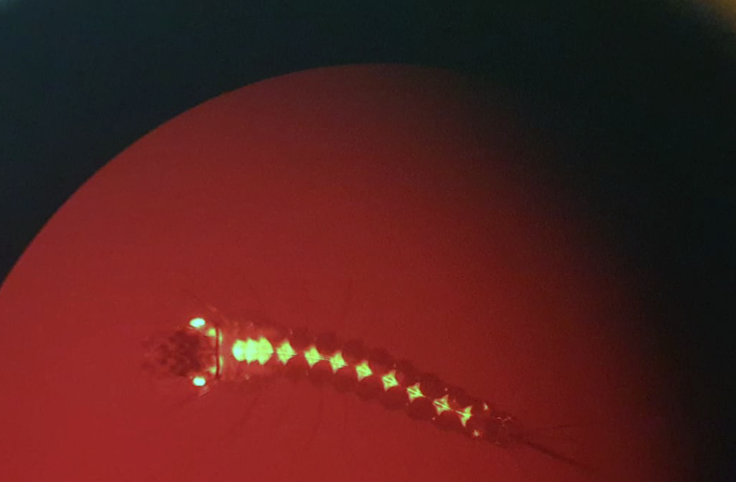Transmission Zero, a global malaria research programme led by scientists at Imperial College London and the Ifakara Health Institute (IHI), in partnership with the Tanzanian National Institute of Medical Research, is proud to announce the generation of the first transgenic mosquito strain to be made in Africa. The strain carries a genetic modification that makes the mosquitoes unable to transmit malaria. This scientific breakthrough is significant because it paves the way for the potential addition of new tools to aid existing efforts to fight the disease on the continent.
Malaria poses a huge burden on humanity with hundreds of thousands of deaths every year, particularly in sub-Saharan Africa. According to the 2022 World Malaria Report, there were an estimated 247 million malaria cases in 2021, 95% of them in Africa. An estimated 619,000 people died from malaria in 2021, mostly children under the age of five.

A transgenic mosquito larva through the lens of a microscope at the Ifakara Health Institute. Photograph: Ifakara Health Institute
The transgenic mosquito strain was developed in specially designed biosafety level 3 (BSL-3) containment facilities established at the Ifakara Health Institute. The strain expresses two molecules which disrupt the development of the malaria parasite within the mosquito. The genetic modification is designed to eventually be coupled with a gene drive construct, with the final aim of developing an innovative approach which could potentially be used to reduce the transmission of malaria and help lower the disease burden.
The development of the transgenic mosquito strain at our facilities at the Ifakara Health Institute demonstrates the effective building of local technical and scientific capacity and infrastructure to generate novel technologies for mosquito control that have the potential to contribute towards malaria elimination. As these technologies move closer to potential field evaluations, it will be important for research institutions and government authorities to proactively collaborate with the aim of creating enabling environments to help guide the work of researchers who are developing innovative approaches to fight malaria.
